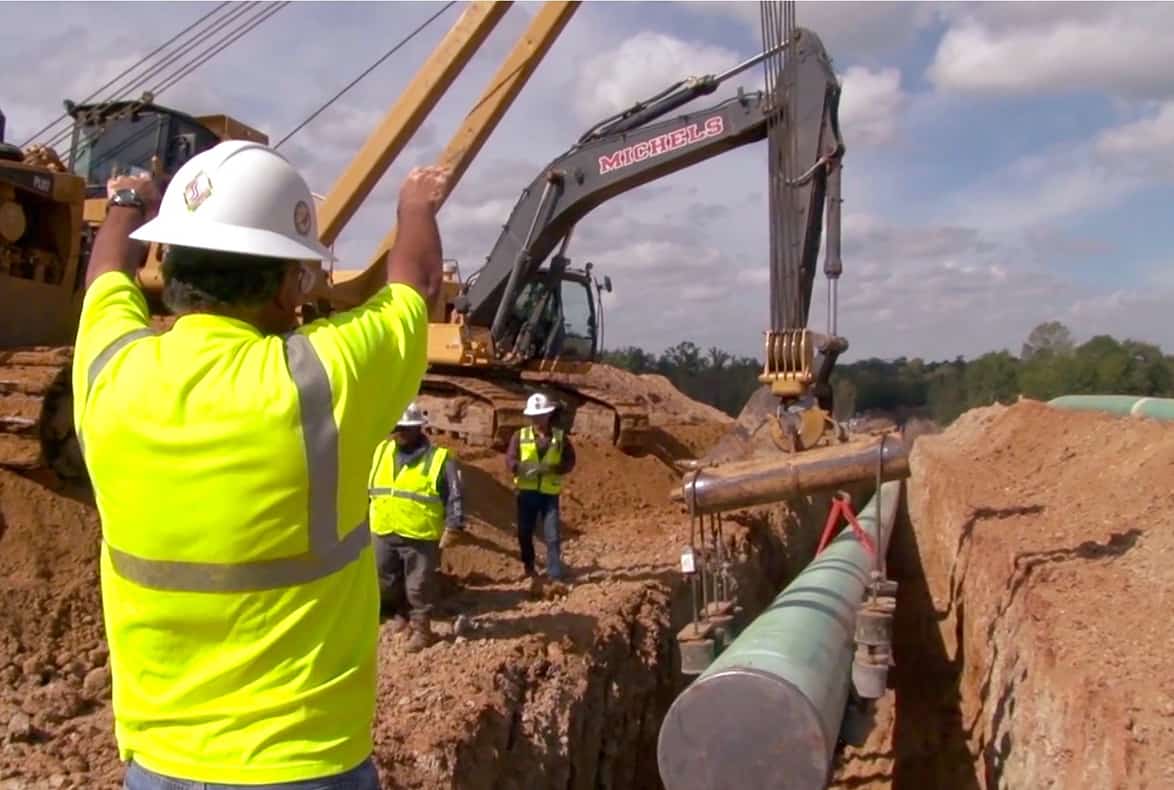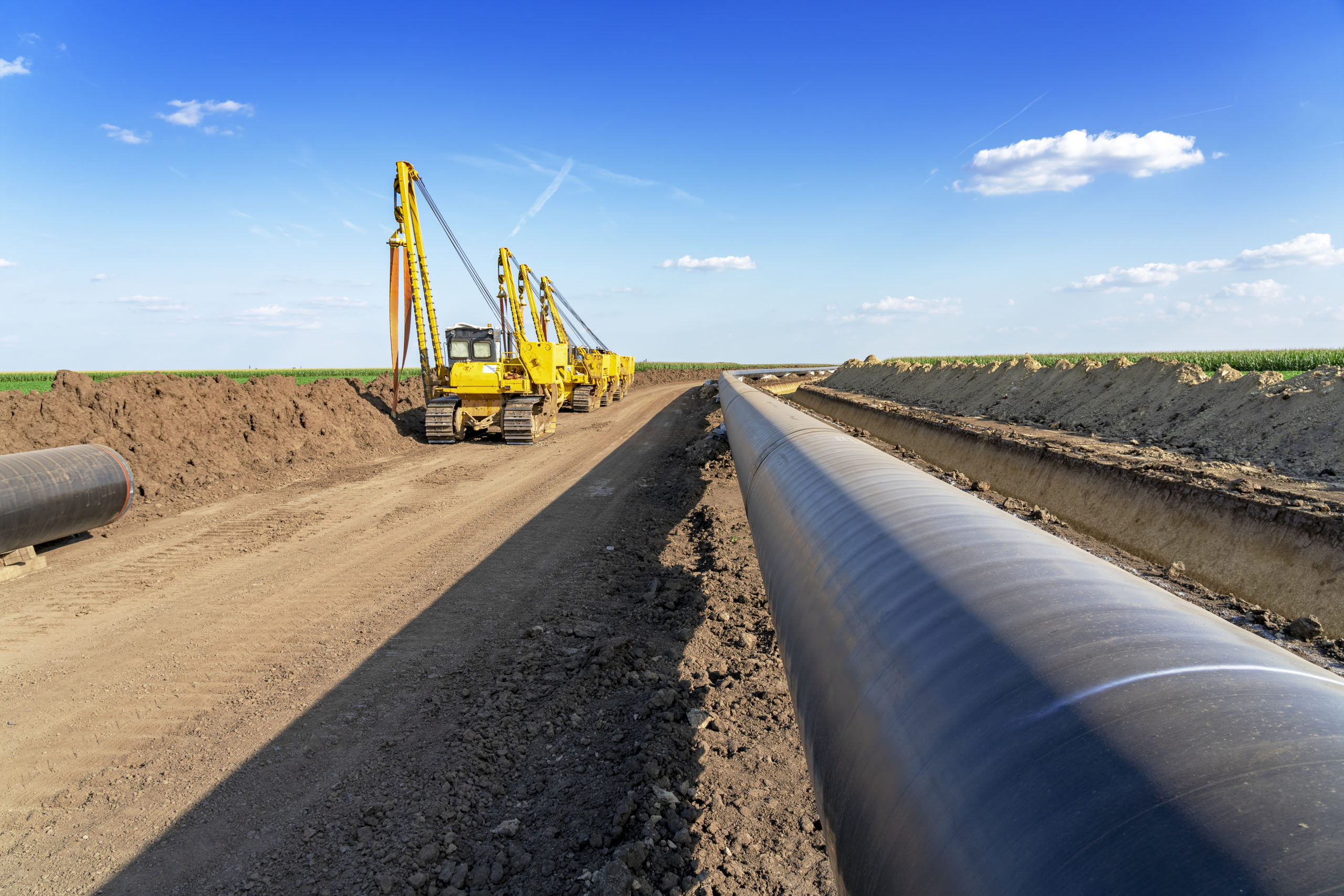Creek Pipe local contractor: Answers to common client concerns
Understanding the Key Features of Pipeline Providers and Their Effect on Performance
Pipeline solutions play a crucial role in various markets, affecting operational performance noticeably. Key functions, such as advanced tracking modern technologies and maintenance approaches, are vital for decreasing downtime. Additionally, regulative conformity guarantees safety and environmental management. The interaction in between layout, infrastructure, and economic factors can complicate these procedures. Recognizing exactly how these aspects impact overall performance elevates vital questions concerning finest techniques and future developments in the area.
The Role of Modern Technology in Pipeline Tracking
As developments in innovation proceed to evolve, the significance of efficient pipeline tracking has ended up being progressively obvious. Modern pipe systems depend on innovative surveillance devices that enhance functional efficiency and security. Technologies such as real-time data analytics, sensing units, and drones supply operators with instant insights right into pipe problems, enabling them to identify leakages, rust, and other potential issues prior to they rise into considerable problems.
The combination of Web of Points (IoT) gadgets has actually transformed standard surveillance techniques, enabling for continuous surveillance and automated reporting. This aggressive approach not only reduces dangers however additionally enhances upkeep schedules and resource allotment. In addition, progressed software application systems promote data visualization and analysis, equipping decision-makers to respond quickly to anomalies. Collectively, these technical advancements not only enhance pipeline honesty but additionally foster environmental stewardship by reducing the possible effect of leaks and spills.
Upkeep Methods for Enhanced Performance
Effective upkeep strategies are necessary for optimizing pipeline performance. Implementing anticipating maintenance techniques, sticking to regular evaluation procedures, and creating robust emergency situation response strategies can significantly boost operational integrity. These approaches not only reduce downtime but also add to the overall safety and stability of pipeline systems.
Anticipating Upkeep Techniques
Predictive upkeep techniques are increasingly identified for their ability to boost operational efficiency in pipeline services. By leveraging data analytics and checking modern technologies, these methods make it possible for drivers to anticipate equipment failures before they occur. This positive technique decreases unintended downtime, decreases maintenance expenses, and expands the lifespan of important properties. Sensors and IoT devices play a critical role in gathering real-time information, enabling for the evaluation of tools health and performance patterns. Device discovering formulas examine this data to recognize patterns and anticipate potential issues. Pipeline drivers can arrange maintenance tasks during non-peak times, enhancing source appropriation and making certain constant operation. Eventually, the adoption of anticipating maintenance fosters a more dependable and efficient pipeline facilities.

Regular Examination Protocols
Regular inspection protocols serve as a keystone of upkeep strategies intended at enhancing efficiency in pipe operations - Creek Pipe local contractor. These methods entail methodical evaluations of pipeline stability, concentrating on discovering prospective issues before they rise. Normal examinations commonly consist of visual analyses, leak detection technologies, and stress tracking to ensure peak performance. By adhering to established schedules, drivers can recognize corrosion, material wear, or obstruction, therefore reducing downtime and repair costs. In addition, information gathered during inspections can inform predictive maintenance efforts, permitting a proactive technique to pipeline management. Eventually, routine evaluations not just expand the life-span of pipe framework yet also add to more secure and more trustworthy transport of resources, enhancing overall functional efficiency
Emergency Situation Reaction Preparation
Emergency reaction planning is essential for keeping efficiency in pipeline procedures, guaranteeing that drivers are prepared to address unanticipated incidents quickly and properly. A well-structured emergency action strategy includes clear procedures, marked roles, and communication approaches to mitigate risks associated with pipe failings. Normal drills and training enhance team preparedness and acquaint personnel with emergency treatments. In addition, having conveniently available sources, such as spill control equipment and emergency situation contact checklists, can considerably reduce reaction times. By incorporating real-time tracking innovations, operators can quickly determine and respond to concerns, lessening environmental impact and operational downtime. Ultimately, a complete emergency situation action strategy not just safeguards assets and workers however also enhances the total effectiveness of pipeline services.
Regulative Compliance and Safety Specifications
Regulatory compliance and security criteria play an important function in the pipeline services market. Midland oilfield pipeline services. Following sector policies assures that firms apply efficient safety methods and risk management techniques. This commitment not only safeguards employees and the setting however likewise enhances overall functional efficiency
Compliance With Sector Laws
Conformity with industry laws is crucial for ensuring the safety and security and performance of pipeline procedures. Governing structures, such as those established by the Environmental Protection Agency (EPA) and the Pipeline and Hazardous Materials Security Administration (PHMSA), set stringent requirements that drivers have to comply with. These laws cover various facets, including pipe style, building and construction, upkeep, and tracking, assuring that systems operate securely and successfully. Non-compliance can bring about severe charges, operational hold-ups, and environmental hazards. By sticking to these policies, pipe business not only safeguard public security and the atmosphere yet likewise enhance their functional effectiveness. Eventually, regulative conformity promotes trust among stakeholders, making certain that pipe services can operate flawlessly in an affordable landscape while meeting legal obligations.
Security Procedure Execution
Effective security protocol application is a vital element of pipeline operations, carefully connected to governing conformity and safety requirements. Complying with these procedures not only assures the security of workers yet likewise safeguards the environment and infrastructure. A durable safety and security structure includes regular training, detailed examinations, and using ideal you can try here safety equipment. Organizations should continue to be vigilant in upgrading their procedures to reflect changes in policies and technical developments. Conformity with established safety criteria lessens the risk of crashes and enhances operational efficiency. Furthermore, a culture of safety fosters worker involvement and accountability, adding to total organizational success. Inevitably, effective security method implementation is critical in keeping the integrity of pipeline solutions and achieving long-term sustainability in operations.
Threat Monitoring Techniques
Implementing durable risk monitoring strategies is crucial for assuring that pipe procedures abide by governing needs and safety criteria. Organizations needs to identify prospective hazards and evaluate threats connected with pipe tasks. This entails performing comprehensive inspections, using innovative monitoring innovations, and preserving compliance with sector laws. Normal training for personnel on safety procedures improves situational awareness and prepares teams to react successfully to emergency situations. In addition, establishing backup plans and carrying out drills can considerably minimize threats. Working together with regulative bodies makes certain placement with advancing security requirements. By focusing on threat management, pipe services can improve operational effectiveness while securing both the atmosphere and public security. Ultimately, a positive technique to run the risk of management promotes a culture of safety within the industry.
Pipeline Style and Facilities Considerations
Exactly how can the style and framework of pipelines affect total operational effectiveness? The arrangement of pipelines plays a vital role in establishing their effectiveness. Reliable style reduces friction losses, thus decreasing power usage during fluid transportation. Elements such as diameter, material choice, and design directly effect flow rates and upkeep needs.
Additionally, tactical placement of valves and monitoring systems enhances functional control and security. Midland oilfield pipeline services. Facilities factors to consider, including ease of access for repair and maintenance, greatly impact downtime and general productivity
Integrating innovative technology for real-time monitoring assists in prompt discovery of leakages or inadequacies, making certain swift reactions to concerns. The general structural stability, affected by product toughness and environmental factors, also shapes long-term functional success. Consequently, thoughtful style and robust framework are important for optimizing pipe effectiveness, inevitably adding to the reliability and productivity of pipeline services.
Environmental Effect and Sustainability Practices
While the need for pipeline solutions remains to expand, recognizing the ecological effect and embracing sustainability techniques has actually become progressively essential. The building and construction and operation of pipes can significantly impact communities, wildlife habitats, and water resources. To minimize these effects, companies are carrying out sophisticated technologies and methods intended at reducing exhausts, preventing spills, and reducing land disturbance.
Sustainability efforts often include using eco-friendly products, boosting energy efficiency, and using renewable resource resources to power procedures. Furthermore, companies are progressively performing detailed ecological evaluations before project initiation, making certain compliance with policies and stakeholder involvement.

Expense Administration and Financial Variables in Pipeline Providers
As the pipe sector grows, efficient price management and understanding financial aspects become necessary for maintaining competition. Business face various economic pressures, including varying product costs, labor costs, and regulatory compliance charges. To navigate these challenges, pipeline provider should adopt strategic monetary planning and budgeting practices.
Purchasing innovation can improve functional performance, ultimately lowering expenses over time. Furthermore, efficient task monitoring warranties that resources are assigned efficiently, decreasing delays and unanticipated expenses.

Market conditions, such as need for power and geopolitical variables, also affect economic viability. Firms must continue to be dexterous, changing their approaches in feedback to these external factors.
Often Asked Questions
What Are the Different Sorts Of Pipeline Provider Available?
Numerous sorts of pipe services consist of transportation, storage space, upkeep, assessment, and fixing. Each solution plays a vital duty in ensuring the smooth activity of materials, boosting security, and minimizing functional disruptions throughout various sectors.
How Often Should Pipeline Inspections Be Performed?
Pipeline examinations must be performed regularly, normally every one to three years, depending on the kind and condition of the pipe. Extra frequent examinations might be required for older or high-risk pipes to ensure security and stability.
What Are the Key Causes of Pipeline Failures?
The primary causes of pipe go to these guys failures consist of corrosion, defective construction, product defects, external damage, leakages, and functional errors. Each factor contributes substantially to possible dangers, highlighting the significance of normal maintenance and tracking for safety and security.
How Can Business Boost Pipeline Service Dependability?
Firms can improve pipeline service reliability by carrying out normal upkeep schedules, using innovative monitoring technologies, carrying out complete examinations, investing in employee training, and adopting positive threat administration techniques to anticipate Learn More Here and alleviate potential failings.
What Role Do Operators Play in Pipeline Providers?
Operators play a vital duty in pipeline services by guaranteeing risk-free transportation, keeping devices, checking system integrity, working with maintenance, and responding to emergencies. Their proficiency directly influences operational performance and reduces disruptions in solution delivery.